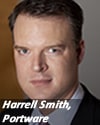Financial markets experts have welcomed Reg SCI, new plans from Securities and Exchange Commission (SEC) to ensure trading venue stability, but warn of difficulties of applying testing standards across market infrastructure technology.
In a speech to the American University School of Law last week, interim SEC chairman Elisse Walter emphasised the need for new rules to help prevent market structure failures.
Citing the technology glitch that led to over US$440 million in losses for Knight Capital in August last year and the 2010 flash crash, Walter said the focus would be on systems compliance and integrity.
“Rather than just trying to reduce the impact of these disruptions, we’re trying to eliminate the causes, by focusing on systems compliance and integrity,” said Walter. “I have asked the staff to accelerate work on a regulation aimed at improving systems compliance and integrity – something we are calling Reg SCI.”
Walter stopped short of laying out a specific timeline for the new rules.
Reg SCI will make the SEC’s Automated Review Policy (ARP) mandatory, a move mooted by Walter’s predecessor Mary Schapiro in the aftermath of the flash crash.
The ARP was first introduced after Black Monday in 1987, when the Dow Jones Industrial Average experienced a 508-point drop – its biggest one-day decline to date – which many blamed on a flood of program trading activity. It essentially requires trading venues to ensure the systems they run have been adequately tested and don’t threaten market stability.
Walter said Reg SCI would require operators of market infrastructure to ensure their core technology meets certain standards, conduct business continuity testing and provide certain notifications regarding systems disruptions and associated events.
“Regular testing and business continuity planning should already be an integral part of operations for firms already and is crucial for from a commercial standpoint,” said Sang Lee, managing partner at consultancy Aite Group. “However, there is a danger the SEC could overprescribe what needs to be done, potentially increasing the cost of maintenance for some players.”
Unpredictable markets
Part of the problem in identifying standards that can be applied across all trading venue operators lies with the unpredictable nature od incidents like the flash crash.
“It is difficult to come up with a single uniform standard for aspects like trading systems capacity and redundancies,” said Harrell Smith, head of product development for Portware, a provider of execution management systems. “The plans are well intentioned, but what makes it difficult is that recent incidents have stemmed from a failure of imagination, rather than a failure to protect against incidents that can be foreseen.”
However, others point out there are certain market conditions that can be planned for, such as the bursts of market activity seen each day between 09.30 and 09.45 when US equity markets open.
 “Every venue has core functions they need to perform, which include the management of a book of buy and sell orders, having the matching technology to bring orders together and the timely distribution market data to the relevant feeds,” said Richard Chmiel, senior vice president, OneMarketData, a provider of market data storage and analytics platforms. “There is no standardisation in terms of testing these core functions from one venue to the next, so having a dynamic minimum threshold on message throughput, for example, is something the SEC might consider.”
“Every venue has core functions they need to perform, which include the management of a book of buy and sell orders, having the matching technology to bring orders together and the timely distribution market data to the relevant feeds,” said Richard Chmiel, senior vice president, OneMarketData, a provider of market data storage and analytics platforms. “There is no standardisation in terms of testing these core functions from one venue to the next, so having a dynamic minimum threshold on message throughput, for example, is something the SEC might consider.”
Ensuring exchanges can handle increased messaging traffic during times of extraordinary market activity may help prevent incidents like the bungled Facebook IPO. The first day of trading for the social media giant’s stock was beset by difficulties that reportedly stemmed from a surge in orders and cancels just before the stock opened. The volume swell is believed to have overwhelmed Nasdaq’s systems, which were unable to process an opening price for the stock, leaving a number of firms – including brokers, institutional and individual investors – unsure of their position in the stock for a number of hours.
The SEC has already implemented a rule that requires brokers to check all trades before they hit the market, is in the process of refining single-stock and market-wide circuit breakers that would prevent excessive volatility, and has directed exchanges to develop a consolidated audit trail, a record of consolidated quote and trade data encompassing all US equity exchanges and alternative trading systems.
